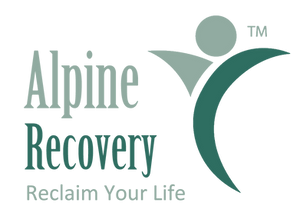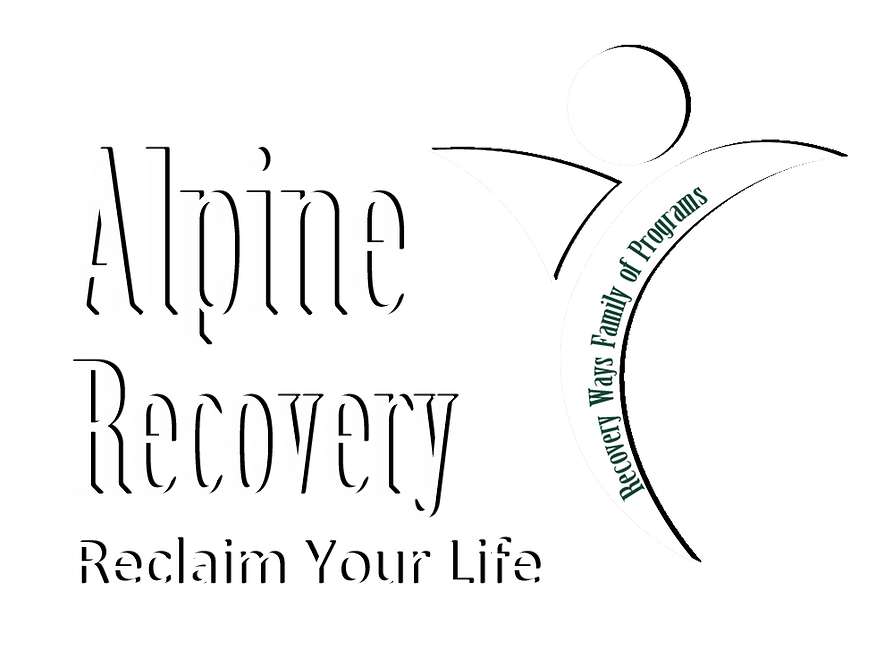The Importance of Affordable Outpatient Care
Outpatient alcohol treatment in Everett, WA, is a vital component of the broader spectrum of addiction recovery services. It offers flexibility and accessibility, empowering individuals to pursue sobriety while maintaining their daily routines. For many, the ability to continue with work, family commitments, and community life during treatment fosters a sense of normalcy and autonomy.
Alpine Recovery recognizes the unique advantages of outpatient care, providing a supportive environment where clients can apply coping strategies in real-world settings. This approach not only enhances personal growth but also reinforces the skills needed to resist substance use triggers. By offering evidence-based outpatient programs, Alpine Recovery is dedicated to making recovery attainable and sustainable for everyone.
Outpatient programs are especially beneficial for those who have completed inpatient treatment or detoxification. Such individuals often possess the foundational skills necessary to engage in outpatient care, which focuses on reinforcement and relapse prevention. This continuum of care ensures that the progress made during initial treatment continues to evolve and strengthen over time.
A Personalized Treatment Approach
At the heart of Alpine Recovery’s outpatient alcohol treatment in Everett, WA, is a commitment to personalized care. Every client receives an individualized treatment plan tailored to their specific needs, circumstances, and recovery goals. This bespoke approach acknowledges the diverse nature of addiction and ensures that treatment aligns with each person’s journey.
Personalized treatment plans often incorporate various therapeutic modalities, such as cognitive-behavioral therapy (CBT), motivational interviewing, and holistic techniques. By blending these approaches, Alpine Recovery addresses the complexities of addiction while fostering holistic healing. Such comprehensive care plans are instrumental in promoting lasting recovery and personal transformation.
Beyond traditional therapy, Alpine Recovery integrates holistic treatments, including mindfulness and nutrition education, into its programs. These elements support clients in nurturing their physical, emotional, and spiritual well-being, creating a balanced framework for recovery. This multifaceted approach exemplifies Alpine Recovery’s dedication to treating the whole person, not just the symptoms of addiction.
Understanding that addiction impacts each individual differently, Alpine Recovery ensures that ongoing assessment and adjustment of treatment plans is an integral part of the process. This dynamic method allows for flexibility in care, addressing emerging challenges and optimizing treatment efficacy.
The Role of Community Support
Community support is a cornerstone of successful outpatient alcohol treatment Everett WA. Alpine Recovery acknowledges the pivotal role that peers and community networks play in fostering healing and resilience. By facilitating connections with others facing similar challenges, clients gain access to a valuable support system that encourages shared experiences and mutual upliftment.
Participation in group therapy sessions is a critical aspect of Alpine Recovery’s outpatient program. These sessions provide a safe space for individuals to share their experiences, challenges, and triumphs with others who understand their journey. This collective environment nurtures empathy, acceptance, and accountability, which are essential components of recovery.
Alpine Recovery also champions the importance of family involvement in the recovery process. Family counseling initiatives offer education on addiction and tools for effective communication, empowering loved ones to support their family member’s recovery. This inclusive approach transforms the family dynamic, laying the groundwork for healthier relationships and a supportive home environment.
Benefits of Evidence-Based Practices
Alpine Recovery leverages evidence-based practices to deliver effective outpatient alcohol treatment in Everett, WA. Such practices are backed by scientific research and have demonstrated success in treating addiction. This approach ensures that clients receive the highest standard of care, grounded in proven therapeutic methodologies.
Cognitive-behavioral therapy (CBT), for example, is a core component of Alpine Recovery’s treatment framework. CBT helps individuals identify and change harmful thought patterns that contribute to addictive behaviors. By fostering cognitive restructuring, clients learn to manage cravings and develop healthy coping mechanisms.
Medication-assisted treatment (MAT) is another evidence-based intervention available at Alpine Recovery. MAT combines medication with counseling and behavioral therapies to address substance use disorders effectively. This integrated approach minimizes withdrawal symptoms and reduces the risk of relapse, enhancing overall treatment outcomes.
Holistic Approaches in Recovery
Alpine Recovery enriches its outpatient alcohol treatment in Everett, WA, with holistic practices aimed at fostering total well-being. By addressing the mind, body, and spirit, clients experience a more profound and sustainable recovery.
Mindfulness practices, such as meditation and yoga, are offered to help clients develop awareness and focus. These techniques promote relaxation, reduce stress, and enhance emotional regulation, all vital for recovery. By integrating mindfulness, clients learn to live in the present moment, diminishing the hold of past trauma or future anxieties.
Alpine Recovery also emphasizes the importance of nutrition and physical health in recovery. Nutritional education provides clients with the knowledge necessary to make healthy dietary choices, supporting physical health and emotional stability. Exercise programs further complement this by promoting endorphin release and improving overall mental well-being.
This holistic approach aligns with Alpine Recovery’s philosophy of healing the whole person. By nurturing all aspects of an individual’s being, the program facilitates not just sobriety, but a thriving, balanced life.
The Importance of Continued Care
Continued care plays a vital role in the long-term success of outpatient alcohol treatment in Everett, WA. Recognizing the ongoing nature of recovery, Alpine Recovery provides structured aftercare planning to support lasting change beyond the initial treatment period.
Aftercare plans are meticulously crafted to suit each client’s specific needs and recovery goals. These plans might include ongoing therapy sessions, participation in peer support groups, and regular check-ins with the recovery team. By maintaining a connection to supportive resources, clients are better equipped to handle potential challenges and sustain their sobriety.
Alpine Recovery’s commitment to continued care extends to relapse prevention education. Clients learn to identify personal triggers and develop strategies to navigate them effectively. This proactive approach empowers individuals to mitigate the risk of relapse and maintain a path of continued growth and self-improvement.
Navigating the Challenges of Outpatient Treatment
While outpatient alcohol treatment in Everett, WA, offers numerous benefits, it also presents unique challenges. Clients must balance their recovery efforts with everyday responsibilities, requiring discipline and resilience.
Alpine Recovery provides robust support systems to help clients navigate these challenges. The organization offers flexible scheduling and personalized care plans that accommodate individual lifestyles. This adaptability ensures that clients can remain committed to their treatment without sacrificing other obligations.
Peer support groups and family counseling further bolster the outpatient experience. These resources create an unparalleled network of understanding and encouragement, reducing feelings of isolation and empowering clients to stay on track.
Innovative Solutions for Lasting Recovery
Alpine Recovery is constantly seeking innovative solutions to enhance outpatient alcohol treatment in Everett, WA. Embracing technology, they offer virtual therapy sessions to increase accessibility and flexibility for clients with scheduling or transportation limitations. This digital approach broadens the reach of therapy, making high-quality treatment available to more people.
Alpine Recovery’s virtual offerings also include online support communities, where clients can connect with peers and counselors from the comfort of their own homes. These platforms provide continuous support, ensuring that help is always within reach.
By incorporating cutting-edge methods and digital tools, Alpine Recovery is poised to meet the evolving needs of its clients, ensuring that everyone has the opportunity to engage in meaningful, transformative recovery.
How long does outpatient treatment usually last?
The duration of outpatient treatment can vary significantly depending on the individual’s needs and progress. Typically, outpatient programs can range from a few weeks to several months. At Alpine Recovery, the treatment plan is customized to each person, focusing on their specific circumstances and goals. For many, outpatient care serves as a continuation of residential treatment, helping clients maintain sobriety while reintegrating into everyday life. By continually assessing progress, Alpine Recovery ensures the program duration best supports sustainable recovery. Have you ever wondered how different treatment lengths might impact recovery outcomes?
What is a typical course of treatment for alcohol?
A standard treatment course for alcohol dependence at Alpine Recovery includes several key components. Initially, clients might undergo a comprehensive assessment to tailor the treatment plan. This often involves a mix of detoxification, individual and group therapy, and family counseling. Evidence-based practices, such as cognitive-behavioral therapy (CBT) and motivational interviewing, are staples in addressing the root causes of addiction. Additionally, holistic practices–like mindfulness and nutrition education–are integrated to support overall well-being. The blend of these therapies is adjusted over time to align with the client’s progress and changing needs. What elements do you think are most crucial in an effective treatment plan?
How many people are in rehab for alcohol?
The number of individuals in rehabilitation for alcohol use can fluctuate based on various factors, including location and time of year. National statistics suggest that millions of people engage in some form of alcohol treatment each year. At Alpine Recovery, a key focus is on creating a supportive community that complements individual treatment. This community aspect is why understanding these numbers is crucial–it reflects the broader network of support available and the shared journey toward recovery. Perhaps you know someone who has been part of such a community. How do you think peer support influences recovery?
What role does community support play in outpatient treatment?
Community support is a cornerstone of successful outpatient treatment as it fosters a sense of belonging and shared experience. At Alpine Recovery, clients are encouraged to participate in group therapy, where they can share their challenges and victories with peers who understand their journey. This mutual support can enhance personal motivation and accountability. Moreover, involving family members in counseling sessions helps strengthen family dynamics and provides additional support systems. By engaging with the community, clients often gain diverse perspectives and encouragement vital for long-term recovery. How do you think community involvement could change the recovery experience?
What are the benefits of evidence-based practices in treatment?
Evidence-based practices are central to the effectiveness of treatment at Alpine Recovery, as they are grounded in scientific research and have proven successful outcomes. These practices, such as CBT and medication-assisted treatment (MAT), help clients develop healthier thought patterns and coping mechanisms. CBT, for instance, empowers individuals to recognize and alter detrimental behaviors, reducing the likelihood of relapse. Meanwhile, MAT can alleviate withdrawal symptoms, making the recovery journey more manageable. The rigorous application of these methods ensures clients receive reliable and high-quality care. Have you considered how different therapeutic models can impact recovery? Which approaches resonate most with you?
Resources
- Substance Abuse and Mental Health Services Administration (SAMHSA) – SAMHSA is the leading agency in the U.S. working to reduce the impact of substance abuse and mental illness on America’s communities.
- National Alliance on Mental Illness (NAMI) – NAMI is the largest grassroots mental health organization in the U.S., dedicated to building better lives for those affected by mental illness.
- National Alliance of Advocates for Buprenorphine Treatment – NAABT is a nonprofit organization dedicated to educating the public about the treatment of opioid addiction with medication.
- National Institutes of Health (NIH) – NIH is the nation’s medical research agency, supporting scientific studies that turn discovery into health.
- Centers for Disease Control and Prevention (CDC) – CDC is a leading national public health institute of the United States working to protect public health and safety through the control and prevention of disease, injury, and disability.


